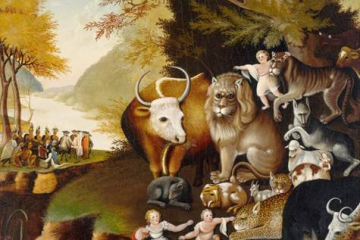Readings: Ezekiel 34:11-16, 20-24 and Ephesians 1:15-23 (NRSV)
Introduction
I’ve been reading some interesting stories during the week, about kings in disguise – kings who disguised themselves as commoners so that they could more freely move around amongst their people. Some of these stories are ancient myths or legends, some are verifiably true historically, and some are probably popular embellishments based loosely on true events.
The reasons for the kings wanting to go incognito varied – for protection or to escape; to discover more about the way of life or thinking of commoners; for love; to let loose and have a good time; to discover rebellion or injustice in the kingdom.
One of the kings I read about was Charles XI of Sweden, who ruled that country from 1660-1697. He was a Christian, Lutheran, who encouraged the production of a hymnal and a new version of the Bible and made it obligatory for commoners to learn the catechism.
He travelled extensively throughout his realm, which is probably what led to the legend of The Grey Coat. According to Swedish folklore, he travelled around the country dressed as a farmer or simple traveller. He would wear a grey coat to hide his royal uniform. He did this in order to discover corruption and oppression against the populace. If he found any guilty of it, he would throw off his cloak in a dramatic fashion and reveal his true identity.
One anecdote tells of him visiting a village which had a church in splendid condition and the priest living in poverty. Continuing, the King found in the next village a church in disrepair and a priest living lavishly. The King solved the situation by switching the priests, giving the poor priest the lavish living conditions and a church the King was certain he would rebuild.
One of the websites where I read about Charles XI had stories of 9 other kings in disguise. The last was Jesus. On this Christ the King Sunday I want to explore that idea a little further. Both the OT and Epistle lectionary readings encourage us to do that.
Ezekiel 34:11-16, 20-24
Ezekiel prophesied at a time of great upheaval and disorientation for the people of Israel. He was a priest who had been deported to Babylon with the first wave of exiles, mostly prominent citizens, around 597BC. Five years later he began his prophesying.
Many of his prophesies, especially the earlier ones, are ones of judgement and destruction. The surrounding nations are included, but his prophesies are mainly against Jerusalem and the king and other leaders who he portrays as false shepherds. He warns of the fall of Jerusalem and the destruction of the Temple, which happened in 587BC, five years after he started prophesying.
Mixed in with his proclamations of doom, however, are some wonderful prophesies of restoration and hope in which he declares that God has not forgotten the people, or the covenant with them, and will deliver them and establish them once more in the land. Some of these prophesies had a partial fulfilment at least when the Persian King, Cyrus, allowed them to return, but they await a final complete fulfilment when Christ comes again.
The vision of the valley of dry bones that come to life is one of those well-known prophesies of restoration. Today’s Passage is another.
Ezekiel declares that God will be their true shepherd, unlike their previous kings and leaders. God will seek out the scattered and lost sheep and bring them to their own land, feed them with good pasture, bind up the injured, and give them rest. They will also have protection and justice, and those who have oppressed them, even their leaders, will be judged and dealt with.
V23 brings an unexpected twist to the prophecy. “I will set up over them one shepherd, my servant David, and he shall feed them: he shall feed them and be their shepherd.” There’s a problem here though – David, the shepherd who had become the nation’s greatest king, had been dead for hundreds of years by this time. So, this prophesy doesn’t make sense, except that God promised David during his reign that David’s throne would never end and that one from David’s kline would be a king forever.
What Ezekiel says is a Messianic prophecy of the coming reign of Jesus. It is tremendously significant then that when Jesus came, he said that he was the Good Shepherd who cared for the sheep and told a parable about the shepherd who went searching for the lost sheep. He no doubt had this passage from Ezekiel in mind.
V24 says: “My servant David shall be prince among them”. Walther Eichrodt, a distinguished German OT scholar of last Century, says in his Theology of the Old Testament that God uses the word Prince here to avoid using the word King, a word that had such bad connotations for these people. He says that Prince is not a lesser title, but only a different title.
Ephesians 1:15-23
The passage in Ephesians highlights the Messiah’s kingship. These 9 verses are actually one very, very long sentencer of 169 words in the Greek. It’s a heart-felt prayer for the Ephesians that includes an overflowing, exultant acknowledgement of Christ as King.
Here in vv20,21 is a superlative description of Christ seated at God’s right hand “in the heavenly places, far above all rule and authority and power and dominion, and above every name that is named, not only in this age but also in the age to come.” All things are subject to Christ, Paul says. This is Christ the King.
Conclusion
A bit like Grey Coat, Jesus left the palace and went to live with his people. He came in disguise as a baby, a boy, a man. He stood up for the poor and oppressed and confronted the evil and injustice they faced. Yet by and large he was unrecognised for who he really was. Paradoxically, his undeserved death has enabled him to bring justice and deliverance throughout the world.
Today he reigns as the Supreme King, but also combines in himself that role of Good Shepherd, seeking out and caring for the sheep. Because his Kingdom is a spiritual one and yet to come in fullness, the rightful King still remains unrecognised by many. But the day is coming when his glory will be fully revealed and his Kingdom fully established and his Kingship acknowledged throughout the whole earth. We await in hope and eager anticipation. Meanwhile, happy Christ the King Sunday.


